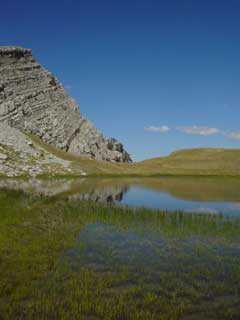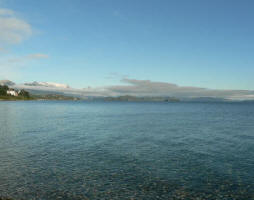- Regional water observation mechanism
- Regional Cooperation Assessment
- Water Quality Monitoring (JP)
- Water scarcity and drought (JP)
- Groundwater (JP)
- Waste water reuse (JP)
- Shared Water Resources Management (JP)
- Linking rural development and water management (JP)
- Waste management
- Water institutions
- Climate Change
- Floods
- Desalination
- Right to Water
- Irrigation
- Satellite data
- Water reports & data
- Hydrology
- Sanitation
- Gender and IWRM
- ArabWAYS
- Non-Revenue Water
- Virtual Water & Water Footprint
- WANA Water Panel
- Water Demand
- Water Governance
- Water Pricing
- Water accounts
- Water nexus Energy
- Geosciences
- Rural Management
 Shared Water Resources Management (JP)
Shared Water Resources Management (JP)
At the Athens Conference held in Athens on 6-7 November 2006, Phase II of Med JP was agreed by the Water Directors, the establishment of a new Working Group on Shared Water Resources Management. The overall objective of the Working Group on Shared Water Resources Management is to promote synergies between competent EU and non EU partners of the Mediterranean and SEE region and to assist for a common approach on key aspects of joint management of shared surface and ground water resources. In particular, the new activity on “Shared Water Resources Management” aims to:
- Review current policies, agreements and practices in the EU and the
Mediterranean area on the issue;
- Promote synergies, at decision-makers and stakeholders level, for the
sustainable management of the shared water resources of the region and
facilitate the exchange of experiences and know-how between experts (EU and
non-EU);
- Promote common approach and methodology on shared water resources
management, based on the IWRM principles and building among others on the
provisions of the WFD , and prepare related recommendations;
Improve awareness raising as well as distribution of information on shared
waters cooperation and management;
- Create the basis for additional related action in the region.
The Water Framework Directive, the European Neighbourhood Policy, the GEF IW and its Strategic Partnership for the Mediterranean, the Petersberg Phase II / Athens Declaration Process, the UNECE Convention on Transboundary Watercourses and International Lakes, the UN ESCWA activities on the subject as well as all the extensive work that has taken place in the sub-regions and countries of the Mediterranean by governments and organisations provide adequate background for the Working Group. The group is led by the Global Water Partnership – Mediterranean (GWP-Med).
 you are not logged in
you are not logged in







